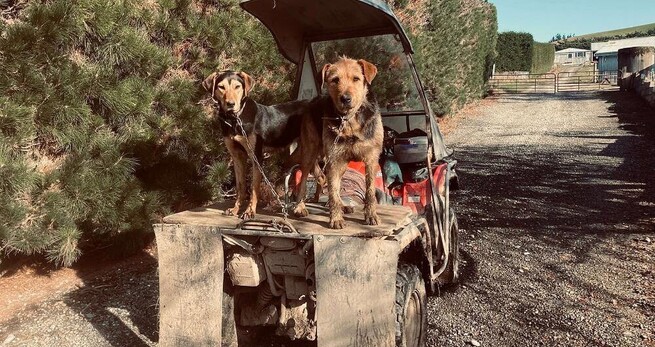Large breed dogs with deep chests like our beloved Huntaways, are more susceptible to twisted guts.
Gastric dilatation volvulus (GDV), often referred to as “a twisted gut” is a common, life-threatening condition in large, deep-chested dogs around the world. In NZ there is a high incidence of this condition in Huntaway working dogs.
What causes Twisted Gut?
- Ingesting bones which can block the stomach.
- Foreign body obstruction.
- Eating too much and too quickly.
- Exercising after feeding.
- Genetics - deep-chested dogs are more susceptible.
How is it repaired?
Prophylactic gastropexy is a surgical procedure to create a strong adhesion between the stomach wall and the abdominal wall to effectively tether the stomach and reduce the opportunity for it to twist in the future. High-risk dogs are potential candidates for this procedure and the option should be discussed with your veterinary surgeon.
It is important to understand that gastropexy does not prevent future episodes of gastric bloating, but does greatly reduce the incidence of volvulus which is the life-threatening twisting of the stomach. Prophylactic (an elective, preventative measure) gastropexy should be considered in any dog that is considered to be at high risk, even if there have not yet been clinical signs or any known family members affected by GDV. Close attention to after-care and feeding instructions will reduce the chance of any post-op complications.
The procedure should not cause any complications to the stomach's natural placement or flow but long term feeding management can still be helpful to lessen the risk posed from bloat.
Although usually done once the dog has proven to be promising as a working dog, remember that in a young dog this procedure could be done at the same time as castration or spay surgery to preemptively prevent the occurrence of GDV.
Have a regular discussion about the health and performance of your working dog team with the veterinarians at VetSouth.
- Hugh Hasselman

